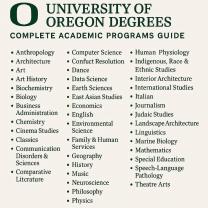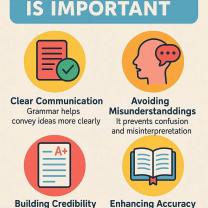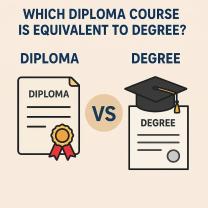What are careers in higher education?
Careers in higher education encompass a wide range of roles and responsibilities within colleges, universities, and other institutions of higher learning. These careers can be broadly categorized into two main paths: academic and administrative. Here's an overview of both paths:
Academic Careers:Academic careers in higher education typically involve teaching, research, and/or scholarship. These roles focus on the core mission of educating students and advancing knowledge. Some common academic positions include:
Professor/Assistant Professor/Associate Professor: These positions involve teaching undergraduate and/or graduate courses in various fields of study. Professors are also expected to conduct research and publish scholarly work in their respective disciplines.
Lecturer/Instructor: Lecturers and instructors primarily focus on teaching and may have less emphasis on research. They often teach introductory or specialized courses.
Researcher/Postdoctoral Fellow: These roles are centered on conducting research in a specific area of expertise. Researchers and postdocs often work on grant-funded projects and may collaborate with professors.
Librarian: Academic librarians manage and organize library resources, assist students and faculty with research, and contribute to information literacy programs.
Faculty Administrator: In some cases, professors may take on administrative roles within their departments or schools, such as department chair, program director, or academic dean.
Adjunct Faculty: Adjunct professors are typically part-time instructors who are hired on a temporary basis to teach specific courses.
Graduate Teaching Assistant (GTA): GTAs are graduate students who assist professors with teaching and grading assignments, often as part of their graduate programs.
Administrative Careers:Administrative careers in higher education involve the management and operation of various aspects of a college or university. These roles support the institution's overall functioning and often work in areas such as:
Student Affairs: Professionals in student affairs roles work with students outside of the classroom, providing support and services related to student life, housing, counseling, career services, and extracurricular activities.
Admissions and Enrollment Management: Staff in these roles are responsible for recruiting and admitting students, as well as managing financial aid and scholarships.
Academic Advising: Academic advisors help students plan their academic paths, select courses, and meet graduation requirements.
Administration and Finance: This area includes positions related to budgeting, financial management, human resources, and facilities management.
Institutional Research: Institutional researchers gather and analyze data to inform decision-making and policy development within the institution.
Development and Fundraising: Professionals in this field work to secure funding and donations to support the institution's programs and initiatives.
Public Relations and Marketing: These roles involve promoting the institution and managing its public image through marketing, communication, and media relations.
Information Technology: IT professionals in higher education maintain and enhance the technology infrastructure that supports teaching, research, and administrative functions.
Legal and Compliance: Lawyers and compliance officers ensure that the institution operates within the bounds of the law and adheres to regulations and policies.
Human Resources: HR personnel manage faculty and staff hiring, benefits, and personnel issues.
These are just some examples of careers in higher education, and there are many other specialized roles within both the academic and administrative tracks. The specific opportunities and requirements for these careers can vary widely depending on the institution's size, mission, and focus. Additionally, some individuals may pursue hybrid careers that blend academic and administrative responsibilities.
Exploring Careers in Higher Education: Pathways and Opportunities
Higher education is a vast and diverse field, with a wide range of career opportunities available. From faculty and administrators to student services professionals and support staff, there is something for everyone in higher education.
One of the most common ways to enter a career in higher education is through teaching. To become a professor, you will typically need to earn a PhD in your field, as well as complete post-doctoral research. However, there are some teaching positions at community colleges and other institutions that do not require a PhD.
Another common pathway to a career in higher education is through administration. Administrative positions range from entry-level jobs like academic advisor or admissions counselor to senior-level jobs like dean or provost. To qualify for most administrative positions, you will need to have at least a master's degree, and in some cases, a PhD.
In addition to teaching and administration, there are many other career options in higher student affairs, research, and support services. For example, you could work as a career counselor, financial aid counselor, librarian, or IT specialist. Many of these positions require a master's degree, but some can be obtained with a bachelor's degree and relevant experience.
If you are interested in exploring a career in higher education, there are a few things you can do to get started:
- Research the different types of jobs available and the qualifications required for each.
- Talk to people who work in higher education to learn about their experiences.
- Volunteer or intern at a college or university to gain experience.
- Network with professionals in the field.
- Pursue a relevant degree and/or certifications.
Navigating the World of Higher Education Professions
The world of higher education professions can be complex and challenging, but it is also rewarding. If you are passionate about education and helping students succeed, then a career in higher education may be right for you.
Here are a few tips for navigating the world of higher education professions:
- Be prepared to work hard. Higher education is a demanding field, and many jobs require long hours and a lot of dedication.
- Be adaptable and willing to learn new things. The higher education landscape is constantly changing, so it is important to be able to adapt and learn new skills.
- Be passionate about education. If you are not passionate about education, then it will be difficult to succeed in a higher education career.
- Be a team player. Higher education is a collaborative environment, so it is important to be able to work well with others.
- Be committed to professional development. The higher education field is always evolving, so it is important to stay up-to-date on the latest trends and developments.
Beyond the Classroom: Career Options in Higher Education
While teaching and administration are two of the most common career options in higher education, there are many other opportunities available. Here are a few examples:
- Student affairs: Student affairs professionals help students succeed academically, personally, and socially. Some common student affairs positions include career counselor, financial aid counselor, and academic advisor.
- Research: Research professionals help to advance knowledge in their field. They may work in a variety of settings, including laboratories, libraries, and museums. Some common research positions include research assistant, research associate, and research professor.
- Support services: Support services professionals provide a variety of essential services to the college or university community. Some common support services positions include librarian, IT specialist, and facilities manager.
No matter what your interests or skills are, there is likely a career in higher education that is right for you. If you are passionate about education and helping students succeed, then a career in higher education is a great option to consider.













